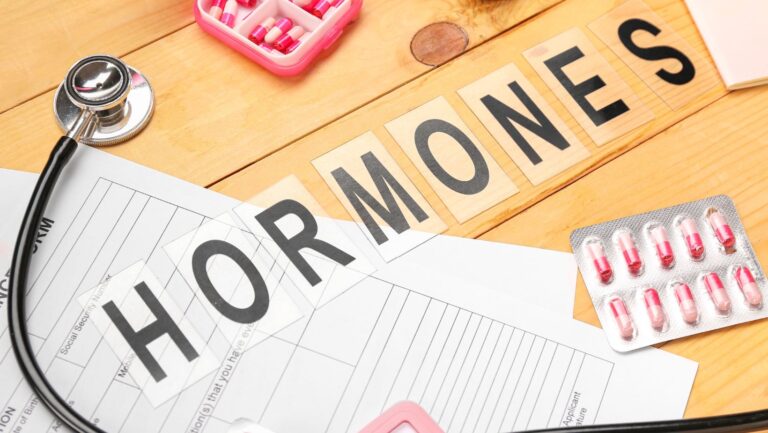What Are Hormones?
In everyday conversation, people often blame hormones for the behavior of teenagers. In everyday life, though, hormones are a variety of chemical messengers that control several essential processes.
Produced by special cells in endocrine glands such as the pituitary, thyroid, adrenals, pancreas, ovaries, and testes, hormones are carried by the bloodstream to target certain tissues and organs. They work together throughout your lifespan in different ways depending on what the body needs at the time. Your body can handle most of life’s challenges when hormones are in balance.
Hormones and Gender
Gender isn’t only determined by genetics. During fetal growth, hormones affect which genes are expressed or repressed. Although all people produce the same basic hormones, they differ in proportion depending on genetics and the stage of life.
What’s more, the sex hormones affect more than gender expression. They also influence muscle mass, bone density, vocal characteristics, facial hair, fat distribution, body odor, and red blood cell production. It should be no surprise that personality characteristics and social behaviors are also impacted by hormones.
Key Hormones and Their Roles
Endocrinologists and other scientists have discovered over 50 hormones in the human body. Here are some examples:
- HGH: Human growth hormone, also called somatotropin, is produced by the pituitary gland deep inside the brain. Not only does it make children mature into adults, but it coordinates with insulin to control metabolism, the process of converting food into energy for all cellular activity. It also helps maintain bone and cartilage health.
- Thyroid hormones: The thyroid gland, located in the neck, secretes two hormones that affect metabolism. An ineffective thyroid is a critical medical problem.
- Cortisol: Secreted by the adrenal glands, the “stress hormone” activates the body for fight or flight during a crisis, also shutting down unneeded processes like digestion.
- Estrogen, progesterone, and testosterone: All adults produce these hormones, but in different amounts depending on their gender and age.
- Insulin: Manufactured by the pancreas, insulin helps your body store and use glucose for energy. Diabetes is a life-threatening condition caused by insulin imbalance.
- Melatonin: Secreted by the pineal gland in the brain as well as the GI (gastrointestinal) tract and retina in the eye, this hormone regulates sleep and wake cycles.
- Parathyroid hormone: If your bones are strong and your calcium and phosphorus are in balance, thank your parathyroid glands.
Hormone Imbalance
Your endocrine system is like a football team: the players perform their roles together to get the job done.

As HGH and insulin are partners in effective metabolism, so is cortisol linked in suppressing some hormones to make the most effective use of energy during stress:
How hormones interact for balance + Mention For example, high stress and elevated cortisol can suppress thyroid function and disrupt sex hormone production, while imbalances in estrogen or testosterone can affect mood, metabolism, and even how the body responds to HGH. If you are suffering from severe HGH deficiency, check about HGH for sale
The thyroid, adrenal, and sex hormones are especially interconnected, influencing each other’s production and activity in complex ways.





